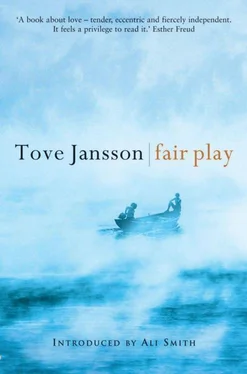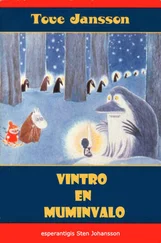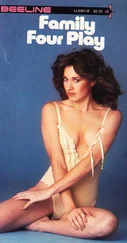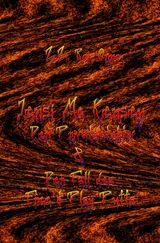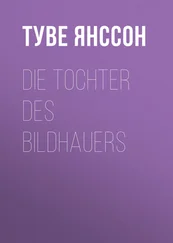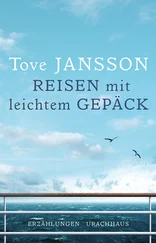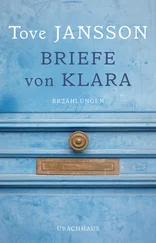On their way home, Verity said, “I forgot to ask Annie if John caught that sore throat. When does your bus leave?”
“Eight o’clock.”
When they came to the Majestic, a fire truck screamed by through the empty streets. It was a windy night, but very warm.
Verity said, “Shall we say goodbye right now and get it over with?”
“Let’s do,” said Jonna.
In the room, Jonna opened her tape recorder. “Listen to this,” she said. “I think it’ll be good.”
The jukebox through a torrent of people talking, Annie’s bright voice, pool balls clicking, the jingle of the cash register — a pause, then their steps on the sidewalk; finally the fire engine and silence.
“But why are you crying?” Jonna said.
“I don’t really know. Maybe the fire truck…”
Jonna said, “We’ll send a pretty postcard to Verity from Tucson. And one to Annie.”
“There aren’t any pretty cards of Tucson! It’s a dreadful place!”
“We could stay here for a while?”
“No,” Mari said. “You can’t repeat. It’s the wrong ending.”
“Of course. Writers,” Jonna said and counted out the next day’s vitamins into two small glasses.
THE SNOW HAD COME EARLY, a blizzard at the end of November. Mari went to the railway station to meet Wladyslaw Leniewicz. His journey from Lodz via Leningrad had been in process for months, with repeated applications, recommendations, and investigations passing slowly from one distrustful office to another. The letters to Mari grew more and more agitated:
“I am brought to despair. Do they not understand, can they not grasp, these cretins, whom they are delaying? The man who has been called The Marionette Master! But, my dear unknown friend, we approach one another, we shall meet despite everything to speak freely of Art’s innermost essence. Do not forget my sign of recognition, a red carnation in my buttonhole! Au revoir!”
The train arrived. There he was, one of the first to alight, long and thin in a huge black coat, no hat, his white hair fluttering in the wind. Even without the carnation, Mari would have known that this was Wladyslaw, such an utterly odd bird. But she was surprised at how old he was, really old. All Wladyslaw’s letters seemed written with youthful intensity, full of overblown adjectives. Plus his disconcerting penchant for hurt feelings at something she had written or failed to write. He sometimes spoke of her “tone of voice”. Mari’s tone of voice had been wrong — and she did not give their shared work her undivided attention. Every misunderstanding must be elucidated, analysed in detail, all their intercourse must be clear and pure as crystal! Oh those letters on the hall floor, her name and address in great, bold letters across the entire envelope …
“Wladyslaw!” she called. “You are here, you are finally here!”
He crossed the platform with long, elastic strides, carefully put down his valise, and fell on his knees before her in the snow. A very old face, deeply furrowed, with a large protruding nose. And, astonishingly, enormous dark eyes that seemed to have lost nothing of their youthful lustre.
“Wladyslaw, my dear friend,” said Mari. “I beg you. Stand up.”
He opened a bag and strewed an armful of red carnations at her feet. The wind swept them across the platform and Mari bent down to gather them up.
“No,” said Wladyslaw, “let them be. They shall lie here, a tribute to the Finnish legend, proof that Wladyslaw Leniewicz passed this way.” He rose, picked up his valise, and offered her his arm.
“Excuse me,” said an arriving passenger, a friendly woman in a fox hat. “Excuse me, but surely you’re not going to leave all those lovely flowers in the snow?”
“I don’t really know,” Mari answered, terribly embarrassed. “It’s nice of you to ask… But I think we have to go…”
Mari unlocked her door. “Welcome,” she said.
Wladyslaw set down his valise, again very carefully. He seemed totally uninterested in the room he had just entered, hardly glancing around. He did not want to take off his long black coat. “One moment — I must call my embassy.”
It was not a long call, but it was very intense. Mari heard his disappointment and — before he hung up — an expression of lofty contempt.
“My dear friend,” Wladyslaw said, “you may take my coat. It will be the case that I remain here, with you.”
In the afternoon, Mari ran across the attic to Jonna. “Jonna, he’s arrived, and he’s eaten nothing on the whole trip, and now he doesn’t want to eat because he’s too upset. But he said maybe ice cream…”
“Calm down,” Jonna said. “Where is he staying?”
“With me. A hotel won’t do, he’s way too proud. And he’s at least ninety years old and says he prefers to discuss art at night! He only sleeps a couple of hours!”
“I’m not surprised,” Jonna said. “Better and better. Do you like him?”
“Very much,” Mari said.
“Good. I’m going out for food in any case, so I’ll get some ice cream and bring it over. And a couple of steaks. He’ll probably want something to eat by this evening.”
“But don’t ring the bell — not yet. Just put it down outside the door. And I’m out of potatoes.”
Wladyslaw and Mari ate ice cream and drank tea.
“Tell me about your trip.”
“Dreadful,” he burst out. “Faces, faces — and their hands! Expressionless, meaningless, raw material I no longer need because I know. I know how to shape a changing countenance to its uttermost expressiveness. I can use simplicity and nuance to make a marionette almost unbearable! You, my precious friend, have drawn certain figures. I beg your forgiveness — but those figures are mute. They do not speak to me. Their hands do not speak to me. But I have given them life, I have taken them over and given them life!”
“Well, well,” Mari said. “But then they’re not mine any more.”
Wladyslaw was not listening. “Theatre, puppet theatre, what do you think it is? Life. Violent life simplified down to its essence, conclusively. Listen to me. I take an idea, the tiniest fragment of an idea, and I think. I feel. And I refine!” He leaped up and began striding back and forth across the room with long, almost dancing steps. “No, say nothing. What is it I have found? I have found a glass shard of what I call the Finnish legend, a shard of a clumsy fairy tale, and I have made this glass shard sparkle like a diamond! Is there any more tea?”
“Not at the moment,” Mari replied rather coldly.
“You should use a samovar.”
Mari filled the saucepan and turned on the hotplate. “It will take a while,” she said.
Wladyslaw said, “I don’t like your tone.”
“According to the contract,” Mari began, conscientiously, and he interrupted her at once.
“You amaze me. Do you speak to me of contracts, of repulsive trivia with which an artist need not concern himself?”
“Now listen to me!” she burst out. “I was supposed to have approval! After all, they’re mine, they were mine. And when do I finally get to start making dinner?”
Wladyslaw continued pacing back and forth. Finally he said, “You know nothing, you are barely seventy, you have learned nothing. I’m ninety-two, does that not tell you something?”
“It tells me that you’re pretty proud of being ninety-two! And you haven’t learned to respect work that isn’t your own!”
“Excellent!” cried Wladyslaw. “You can be angry! Good, very good. But you haven’t put any anger into your figures, and nothing else either. I’m telling you, they’re mute! Well-drawn fairy-tale figures, fairy-tale idiots; look at their eyes, look at their hands, pathetic paws! Wait. I’ll show you.” He ran for his valise.
Читать дальше
